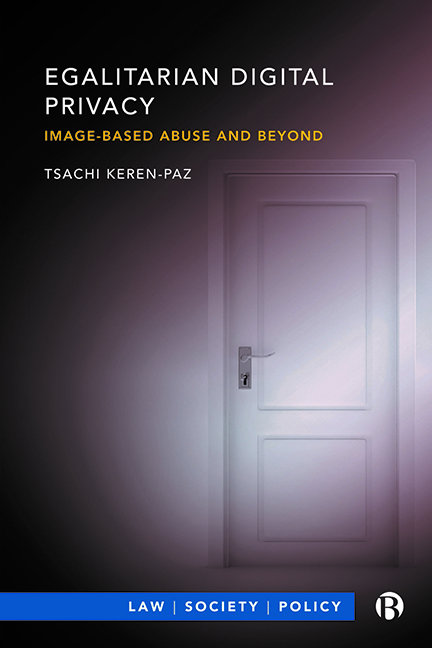Book contents
- Frontmatter
- Dedication
- Contents
- Acknowledgements
- Series Editor’s Preface
- 1 Introduction
- 2 Setting the Ground: The Intermediary Liability Debate and Framing Issues
- 3 First Principles and Occupiers’ Liability: The Case against Immunity
- 4 Property and Privacy: The Case for Strict Liability
- 5 Property and Privacy: Objections and Possible Extensions
- 6 The Policy Debate: Uniqueness of Harm from NCII
- 7 The Policy Debate: Freedom of Expression and Financial Costs of Filtering
- 8 The Easy Case for Viewers’ Liability: Child Pornography and Apportionment of Liability
- 9 Viewers’ Liability: Intention and Objective Fault
- 10 The Power of Property: Strict Liability for Viewing NCII
- 11 Scope of Liability for Breaches of Privacy
- 12 Is Suing Viewers Practicable?
- 13 Conclusion
- References
- Index
9 - Viewers’ Liability: Intention and Objective Fault
Published online by Cambridge University Press: 17 January 2024
- Frontmatter
- Dedication
- Contents
- Acknowledgements
- Series Editor’s Preface
- 1 Introduction
- 2 Setting the Ground: The Intermediary Liability Debate and Framing Issues
- 3 First Principles and Occupiers’ Liability: The Case against Immunity
- 4 Property and Privacy: The Case for Strict Liability
- 5 Property and Privacy: Objections and Possible Extensions
- 6 The Policy Debate: Uniqueness of Harm from NCII
- 7 The Policy Debate: Freedom of Expression and Financial Costs of Filtering
- 8 The Easy Case for Viewers’ Liability: Child Pornography and Apportionment of Liability
- 9 Viewers’ Liability: Intention and Objective Fault
- 10 The Power of Property: Strict Liability for Viewing NCII
- 11 Scope of Liability for Breaches of Privacy
- 12 Is Suing Viewers Practicable?
- 13 Conclusion
- References
- Index
Summary
Introduction
One conclusion from the previous chapter is that the viewing of child pornography is a breach of privacy which ought to be captured as such by the relevant privacy torts, is likely to be so captured by the English privacy version and could be captured – albeit with some stretching – by the intrusion tort common in US jurisdictions. Since what makes such viewing a breach of privacy has very little (if anything) to do with the underlying abuse, the same conclusion must be true at least for the intentional viewing of NCII. Part 2 will defend this view with reference to case studies in which viewers look for NCII, while also commenting on the budding policy discussion of whether to criminalize the intentional possession of NCII. Beyond this category questions arise as to (1) whether viewers who took a risk that they might come across NCII should be liable (Part 3) and (2) whether liability for this breach of privacy should be and is strict (Chapter 10). In deciding the former, the degree of risk of undermining the claimant’s privacy interests caused by the viewer’s behaviour is paramount. The analysis will draw on anecdotal data about the ways NCII are shared and viewed. While comprehensive data on this issue is missing (Henry and Powell, 2018: 202), civil litigation, in the main, does not require this data; rather, the individual behaviour of the defendant-viewer will be sufficient to decide whether liability could be imposed and based on what theory of liability or cause of action; such individual behaviour will often be verifiable to courts.
Intentional viewing
Anecdotal evidence abounds that some viewers search for intimate images that were disseminated without the subject’s consent. Presumably, the mere fact that the images are disseminated without consent are either a sexual turn-on in itself – a modern variation on the observation in Proverbs 9:17 that ‘[S]tolen waters are sweet’ – or an outlet to misogynistic predilections, so that viewers can revile in the humiliation caused to victims from this indignity (Holten, 2020).
- Type
- Chapter
- Information
- Egalitarian Digital PrivacyImage-based Abuse and Beyond, pp. 157 - 174Publisher: Bristol University PressPrint publication year: 2023



